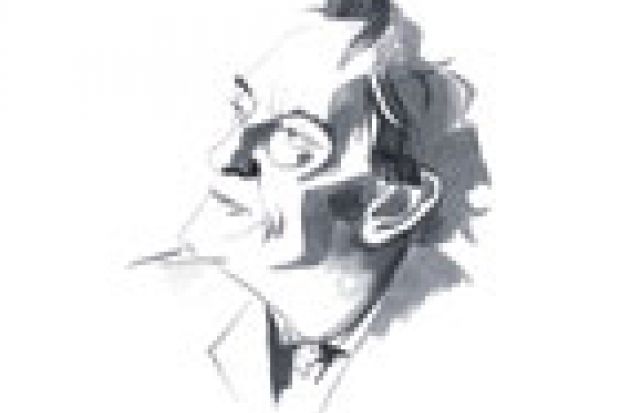You may ascend Mount Fuji, or sail to Sakhalin, but will not soar as high or go so far as the poetry of Bashō will take you. You may tour the South Seas, but, unless your sensibilities are exceptional, you would do better to read about them in the pages of Conrad, Jack London, Stevenson and Somerset Maugham. I weep at the folly of friends whose bucket lists include time-wasting, nerve-jangling, health-shattering journeys to places ruined by tourists too dumb to understand them and too daft to benefit from them. My rage against travel may be warped by my own frustrations: I am condemned to circle the world, never seeing anything except airports and lecture rooms. The loveliest stretches of most journeys are, for me, hours spent locked in an aeroplane with a book.
The best bucket list is blank, because the things one should yearn for before one dies are those one does not know. Every new fact mastered, reference memorised, quotation placed, word acquired, or image impressed on the mind perfectly balances the sweetness of pleasure and sharpness of pain: pleasure in growing, pain at realising how mentally stunted I am and how little time is left for me to learn.
There is no point in wasting class time on material that students will master anyway for their own purposes, such as sex or tax
At a panel last week in New York, the poet Jonathan Cohen quoted an ancient New York Times article of Walt Whitman’s about the Hispanic heritage of the United States. It surprised and enchanted me – and humbled me, too, because a lifetime had not sufficed for me to discover it for myself. A few days later in Santa Fe, New Mexico, the historian Orlando Romero showed me copper bolt-heads that conquistadores fashioned for their crossbows: I got a vivid sense of the savagery and isolation of the warfare the Spaniards extemporised on a remote frontier of empire – mingled with regret that my study of the topic had been dim and under-informed before.
So those blank reams of my bucket list grow, coiling into the distance in untidy scrolls, as my awareness of my own ignorance increases. Maybe that is why I cannot bring myself to take part in the curriculum-reform exercise in which my university is now absorbed. “What”, my colleagues ask, “should a Notre Dame student know?” The question is of the kind that can turn a campus into a cockpit. Postmodern decriers of the canon squawk and strut. Defenders of popular programmes in economics and psychology ruffle their feathers. Philosophers and theologians, who teach the traditionally compulsory courses at Notre Dame, start sharpening talons. Advocates of “skills” and apostles of epistemics circle warily. In every department, coxcombs flash like battle banners.
I respond with indifference. For three reasons I cannot share the excitement. First, my own ignorance makes me indulgent of my students’ patchy knowledge. Second, I suspect that what you teach matters little compared with how you teach it. An inspiring course of accountancy – if such a thing is possible – can leave a student as impassioned for further learning as can a series of lessons on the alchemy of Paracelsus or the sonnets of Michelangelo. Finally, I have to confess that I nourish in secret a core curriculum of my own, but fear to reveal it – until now – because it is so defiantly impractical and gloriously counter-cultural that it must incur dismissal and disdain.
Formal education, I think, should be consecrated to ends unattainable by other means. There is no point in wasting class time on material that students will master anyway for their own purposes, such as sex or tax. It is folly to sacrifice youth to rigmarole best learned on the job, such as business management or computer programming. Modern languages are accessible elsewhere: go to Mongolia, not Milwaukee, to learn Mongolian; or to Tuscany, not Tuscaloosa, for Italian. You will learn enormously more in stunningly less time. Any aptitude for which a student has an economic incentive can be left to his or her own devices, on the principle of enlightened self-interest. I do not need to pay someone to teach me arithmetic: I can learn to count the cost on my own. I do not need a professor of cooking in my life: bachelorhood taught me enough of the art.
The only good reason for making a subject compulsory is that students do not want – or do not know they want – to do it; the only good reason for including it in the core curriculum is that nowhere, save at university, can it be mastered well. So I would take the least popular courses, with the least obvious practical applications, and the least remunerative economic prospects, and construct my core curriculum of those. Strangely, the subjects these criteria qualify turn out to be life-enhancing – unlocking worlds of experience inaccessible to most people, equipping understanding, stimulating imagination. Philosophy and theology – the old Notre Dame paired standby – are vindicated. And at least in the Western world, Latin, Greek and Scripture-knowledge, for students who are to enjoy life to the full, will do more for their understanding of literature and art than any amount of instruction in critical theory. My core subjects will not give students the means to buy leisure, but, when they have acquired it by the exercise of their own talents, they will know how to use it well.





